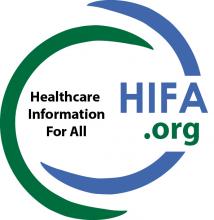
Community Health Workers feel unrecognised and undervalued by community leaders and health professionals. This was the central message from a major thematic discussion held on the HIFA forums and sponsored by The Lancet, Reachout Project/Liverpool School of Tropical Medicine, World Vision International and USAID Assist Project.
More than 60 HIFA members contributed their experience and expertise to the discussion, including CHW programme managers, researchers and policymakers, as well as a large number of CHWs and ASHAs from India and Uganda. Countries represented included Burundi, Cameroon, Canada, Ethiopia, France, Ghana, India, Iran, Japan, Kenya, Malaysia, Netherlands, New Zealand, Nigeria, Pakistan, Rwanda, Switzerland, Tanzania, Uganda, UK, and USA.
Other major concerns were lack of training and supervision; access to healthcare information; remuneration; equipment, medicines, and need for mobile phones/computers. CHWs said they are asked to carry out a wide range and ever increasing number of tasks, but often without the appropriate facilities to enable this.
'CHWs feel unrecognised and undervalued by official health care providers which not only reduces morale but also creates a disjoint between perceived influence by community, and their actual influence, reducing their respect from the community. Furthermore, this lack of respect is reflected in their lack of training and supervision, and results in a paucity of avenues for them to voice their needs and concerns. '
Our thanks to Naomi Douglas and Polly Walker of World Vision International for preparing a narrative summary of the discussion, published today and available here.
Our thanks also to all 65 HIFA members who contributed your experience and expertise, and to the many CHWs and ASHAs in Uganda and India who contributed anonymously (thanks to parallel WhatsApp groups in the local languages, facilitated by HIFA members Kavita Bhatia, Sunanda Reddy, and Carol Namata.
The discussion was planned and implemented by the HIFA Project on Community Health Workers which will take forward the findings for further advocacy and action.

